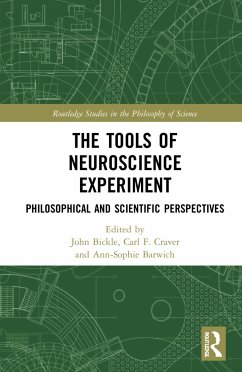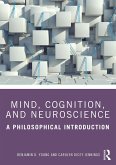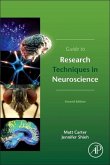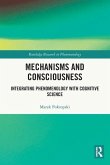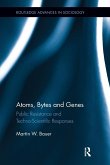This volume establishes the conceptual foundation for sustained investigation into tool development in neuroscience. Neuroscience relies on diverse and sophisticated experimental tools, and its ultimate explanatory target-our brains and hence the organ driving our behaviors-catapults the investigation of these research tools into a philosophical spotlight.
The chapters in this volume integrate the currently scattered work on tool development in neuroscience into the broader philosophy of science community. They also present an accessible compendium for neuroscientists interested in the broader theoretical dimensions of their experimental practices. The chapters are divided into five thematic sections. Section 1 discusses the development of revolutionary research tools across neuroscience's history and argues to various conclusions concerning the relationship between new research tools and theory progress in neuroscience. Section 2 shows how a focus on research tools and their development in neuroscience transforms some traditional epistemological issues and questions about knowledge production in philosophy of science. Section 3 speaks to the most general questions about the way we characterize the nature of the portion of the world that this science addresses. Section 4 discusses hybrid research tools that integrate laboratory and computational methods in exciting new ways. Finally, Section 5 extends research on tool development to the related science of genetics.
The Tools of Neuroscience Experiment will be of interest to philosophers and philosophically minded scientists working at the intersection of philosophy and neuroscience.
The chapters in this volume integrate the currently scattered work on tool development in neuroscience into the broader philosophy of science community. They also present an accessible compendium for neuroscientists interested in the broader theoretical dimensions of their experimental practices. The chapters are divided into five thematic sections. Section 1 discusses the development of revolutionary research tools across neuroscience's history and argues to various conclusions concerning the relationship between new research tools and theory progress in neuroscience. Section 2 shows how a focus on research tools and their development in neuroscience transforms some traditional epistemological issues and questions about knowledge production in philosophy of science. Section 3 speaks to the most general questions about the way we characterize the nature of the portion of the world that this science addresses. Section 4 discusses hybrid research tools that integrate laboratory and computational methods in exciting new ways. Finally, Section 5 extends research on tool development to the related science of genetics.
The Tools of Neuroscience Experiment will be of interest to philosophers and philosophically minded scientists working at the intersection of philosophy and neuroscience.
"This book is a timely contribution to debates surrounding the philosophy of neuroscience in practice. Some bold hypotheses are ventured and defanged; new analyses of concepts are offered that will help us analyse and understand neuroscientific experimentation and explanation; and the analysis of neuroscience-its tools, theories, and concepts-is advanced on multiple fronts."
David L. Barack, The British Journal for the Philosophy of Science
David L. Barack, The British Journal for the Philosophy of Science

